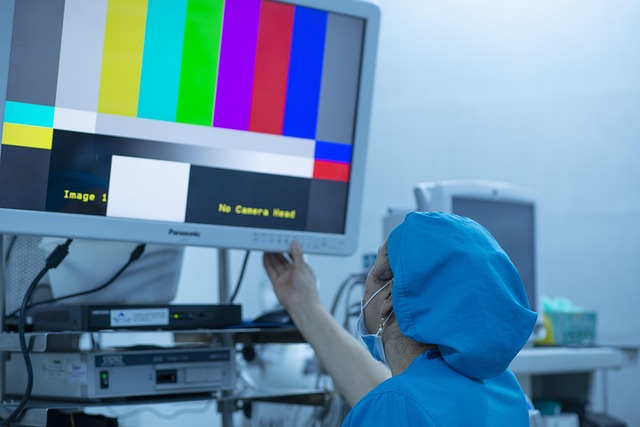Donor eggs prove invaluable for women with ovarian conditions like PCOS or endometriosis, enhancing IVF success rates after surgery and avoiding complications from reduced ovary function. Rigorous donor selection, advanced techniques (PGT), strategic freezing/thawing, and optimized culture conditions yield better outcomes, enabling family building through IVF despite surgical interventions.
“Women facing fertility challenges due to ovarian conditions often find hope in in vitro fertilization (IVF) using donor eggs. This comprehensive guide explores the success rates of IVF with donor eggs post-ovarian surgery, a crucial topic for those navigating these treatments. We delve into the role of donor eggs, dissecting their significance in overcoming ovarian issues. Additionally, we examine how surgical interventions impact IVF outcomes and identify factors influencing success. Discover practical strategies to optimize results after surgery, offering valuable insights for women seeking to build families.”
Understanding Donor Eggs for Fertility Treatment
Donor eggs have become an increasingly common and effective solution for women facing fertility challenges due to ovarian conditions. In cases where a woman’s ovaries are affected by conditions like polycystic ovary syndrome (PCOS), endometriosis, or even age-related decline in egg quality, donor eggs offer a promising alternative. By utilizing eggs from a healthy donor, these women can significantly improve their chances of successful in-vitro fertilization (IVF) treatment.
This approach is particularly beneficial as it bypasses the potential hurdles posed by ovarian surgery, which might be required to address specific conditions. Donor eggs provide high-quality genetic material, ensuring better embryo development and a higher success rate during IVF procedures. This option allows women with ovarian issues to explore their fertility options, ultimately giving them a chance at building their families.
Ovarian Surgery: Impact on IVF Success Rates
Ovarian surgery, often a necessary step for women dealing with ovarian conditions such as endometriosis or cysts, can significantly impact fertility and subsequent IVF success rates when using donor eggs. While these surgical procedures aim to address underlying health issues, they may also affect the ovary’s ability to produce healthy oocytes (eggs). In some cases, extensive surgery can lead to reduced ovarian reserve, where the number of remaining fertile eggs diminishes, making it more challenging to achieve a successful IVF cycle.
Donor egg utilization becomes particularly crucial after ovarian surgery as it overcomes the limitations posed by decreased ovarian function. The use of donor eggs for women with ovarian conditions allows them to bypass the potential hurdles associated with surgical intervention and its effects on fertility. This approach has shown promising outcomes, offering an alternative path to building a family for those facing challenges related to their ovaries.
Factors Affecting IVF Outcomes with Donor Eggs
The success rates of in-vitro fertilization (IVF) using donor eggs can be influenced by various factors, particularly when addressing ovarian conditions. Women facing ovary-related issues may have reduced fertility potential, and donor eggs offer an alternative solution. The quality and age of the donor’s eggs play a significant role; younger eggs generally show better outcomes. Additionally, the effectiveness of IVF is impacted by the underlying ovarian surgery and its success. For instance, a procedure like oophorectomy or ovary preservation techniques can affect egg retrieval and subsequent fertility.
Other considerations include the woman’s age, as advanced maternal age is associated with lower IVF success rates overall. Medical conditions such as endometriosis or previous failures of IVF attempts may also impact outcomes. Optimizing these factors through personalized treatment plans and advanced medical techniques can enhance the chances of a successful pregnancy using donor eggs after ovarian surgery.
Optimizing Results: Post-Surgery IVF Strategies
For women with ovarian conditions, optimizing IVF outcomes using donor eggs involves a tailored approach post-surgery. Careful selection of donors and rigorous screening can enhance compatibility and reduce complications. Additionally, advanced IVF techniques such as pre-implantation genetic testing (PGT) further improve success rates by identifying healthy embryos.
Strategic egg freezing before surgery and subsequent thawing for IVF allows for a controlled timeline, minimizing the impact of any post-operative changes on fertility. Optimizing the environment during culture and fostering a supportive culture media can also positively influence embryo development and implantation potential.
For women facing fertility challenges due to ovarian conditions, utilizing donor eggs in conjunction with IVF after ovarian surgery offers a promising path. By understanding the unique considerations of donor eggs and implementing strategies to optimize results, success rates can be improved significantly. This approach allows individuals to navigate their fertility journey with hope and increased chances of achieving a healthy pregnancy. Donor eggs for women with ovarian conditions provide an alternative solution, enabling them to build families and experience the joy of parenthood.
